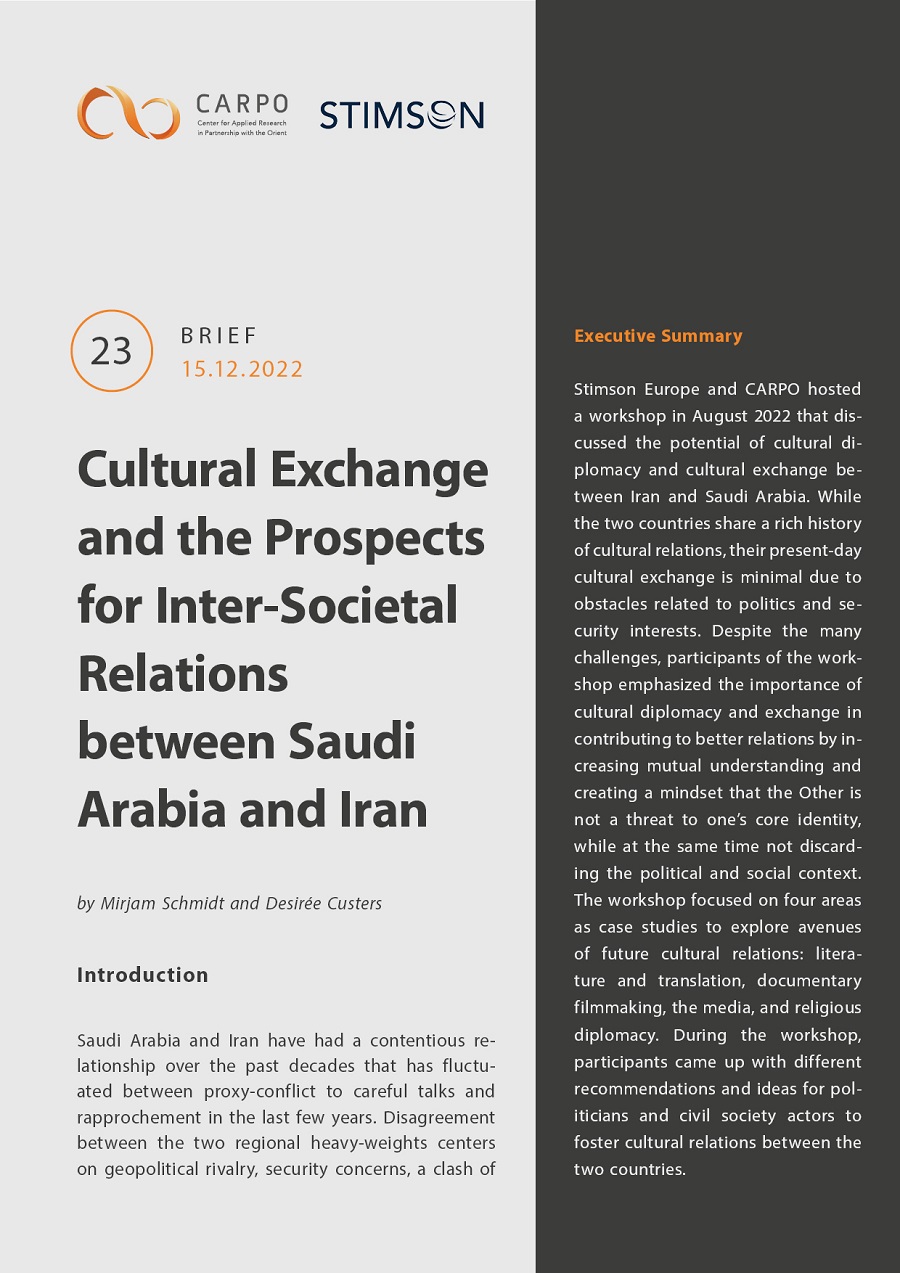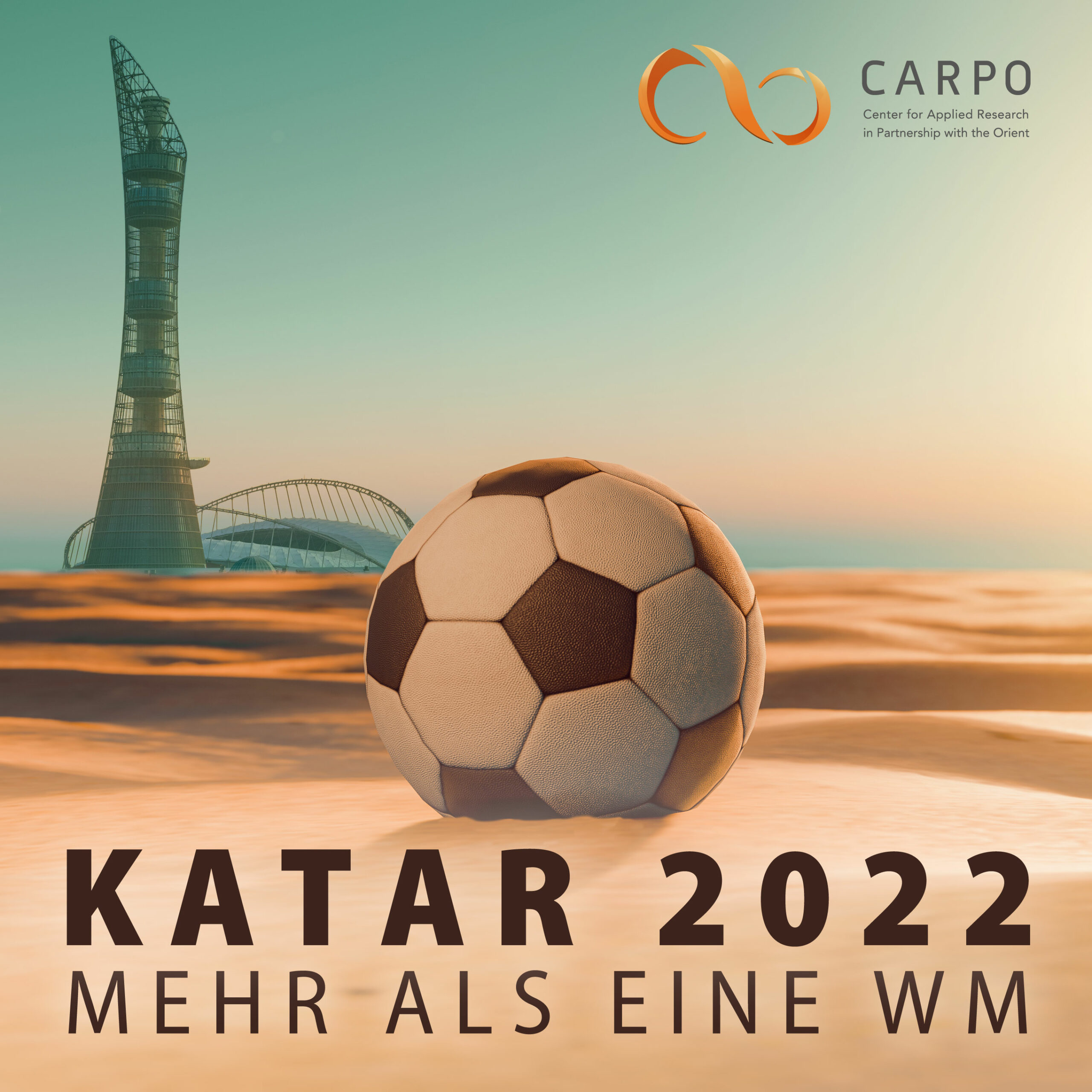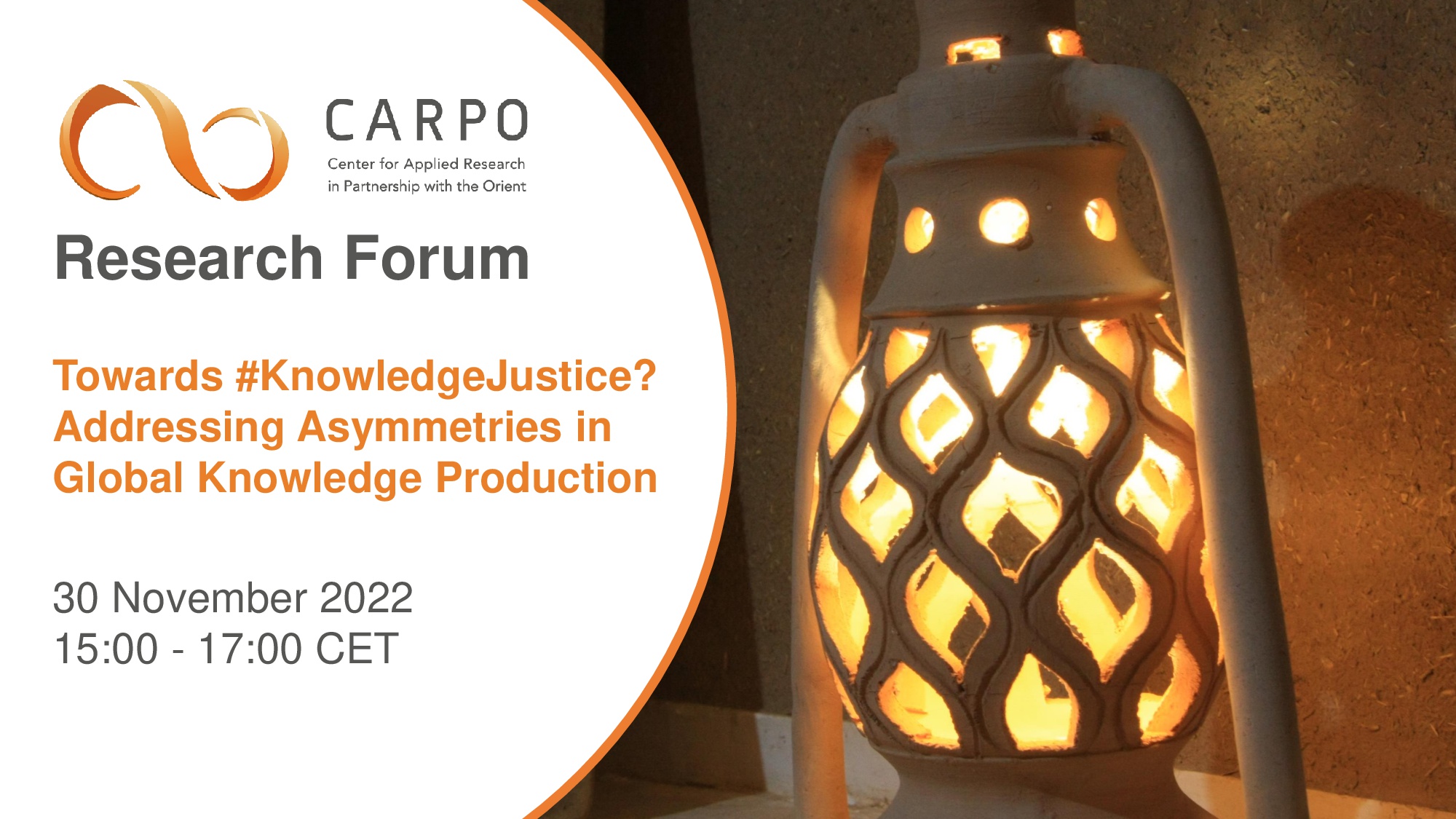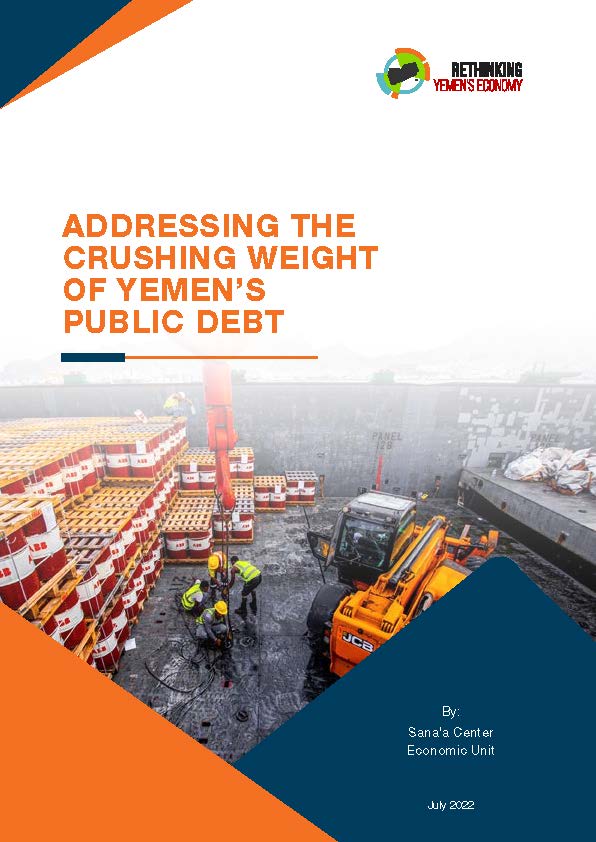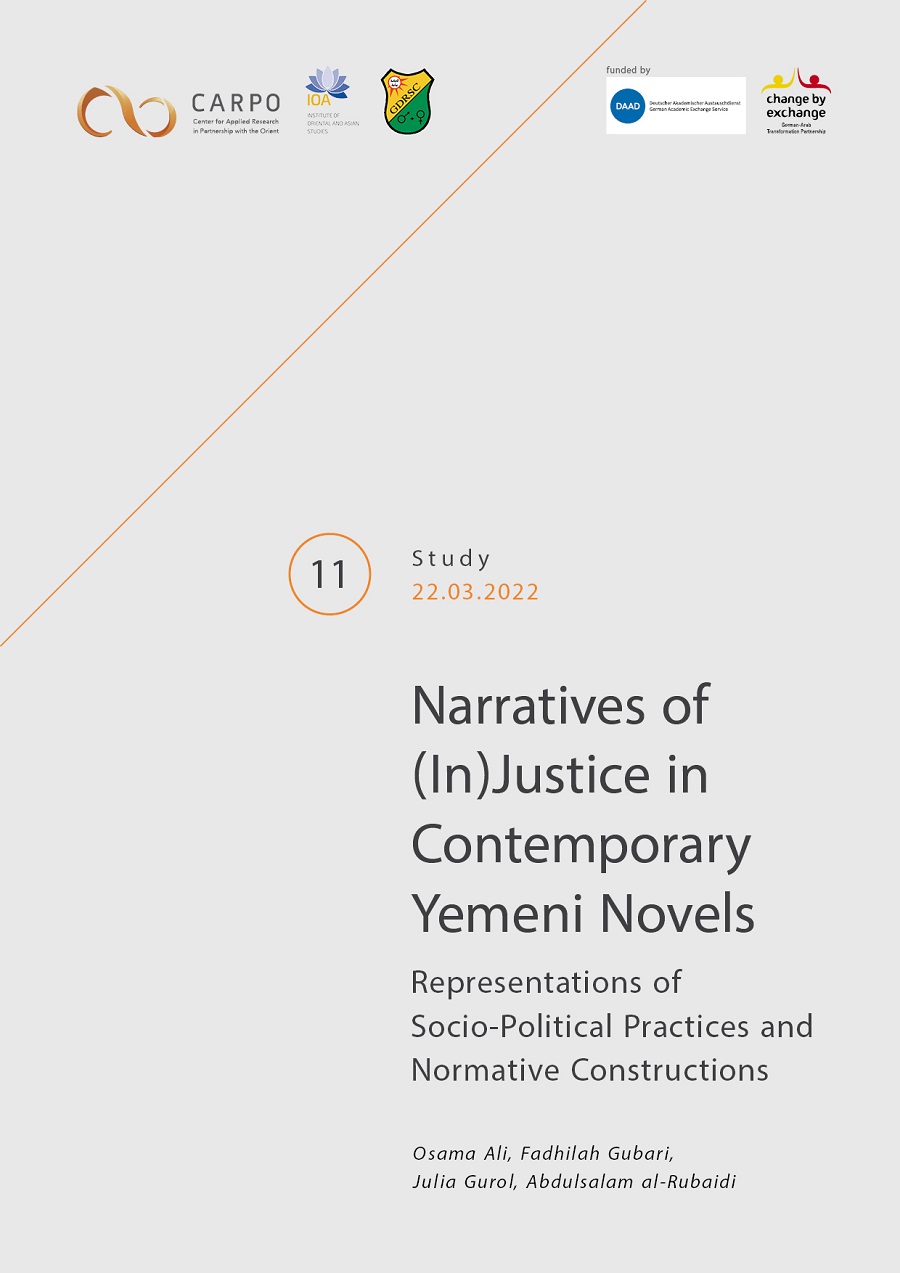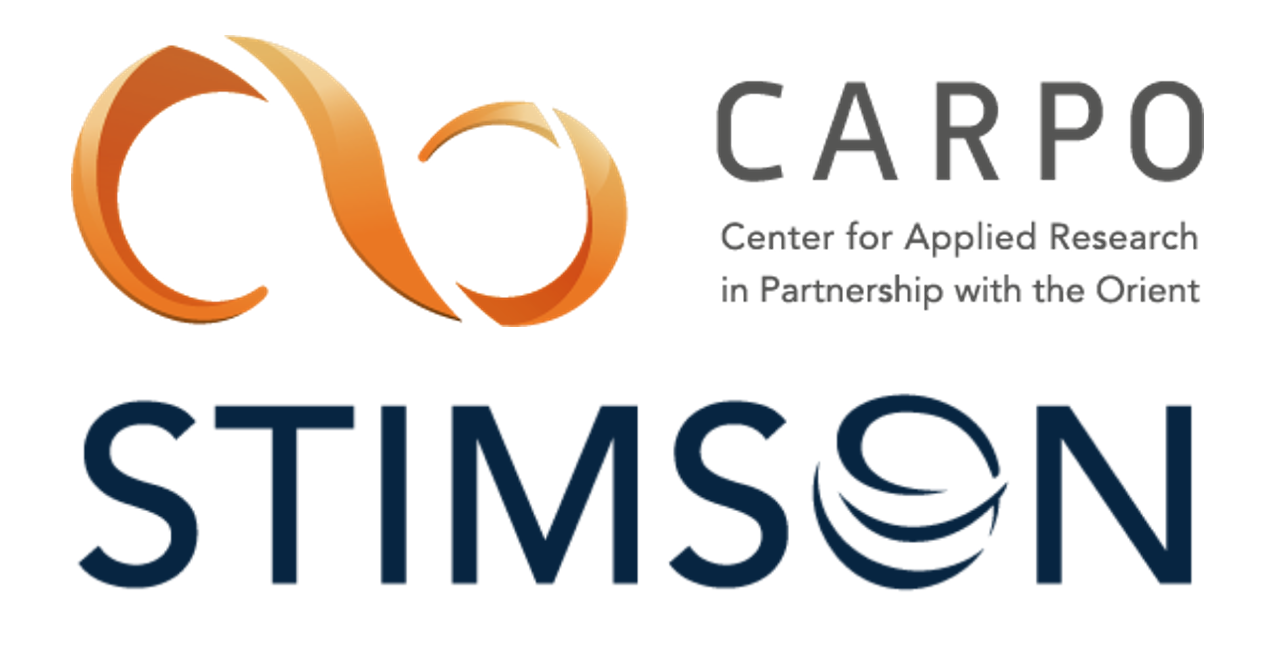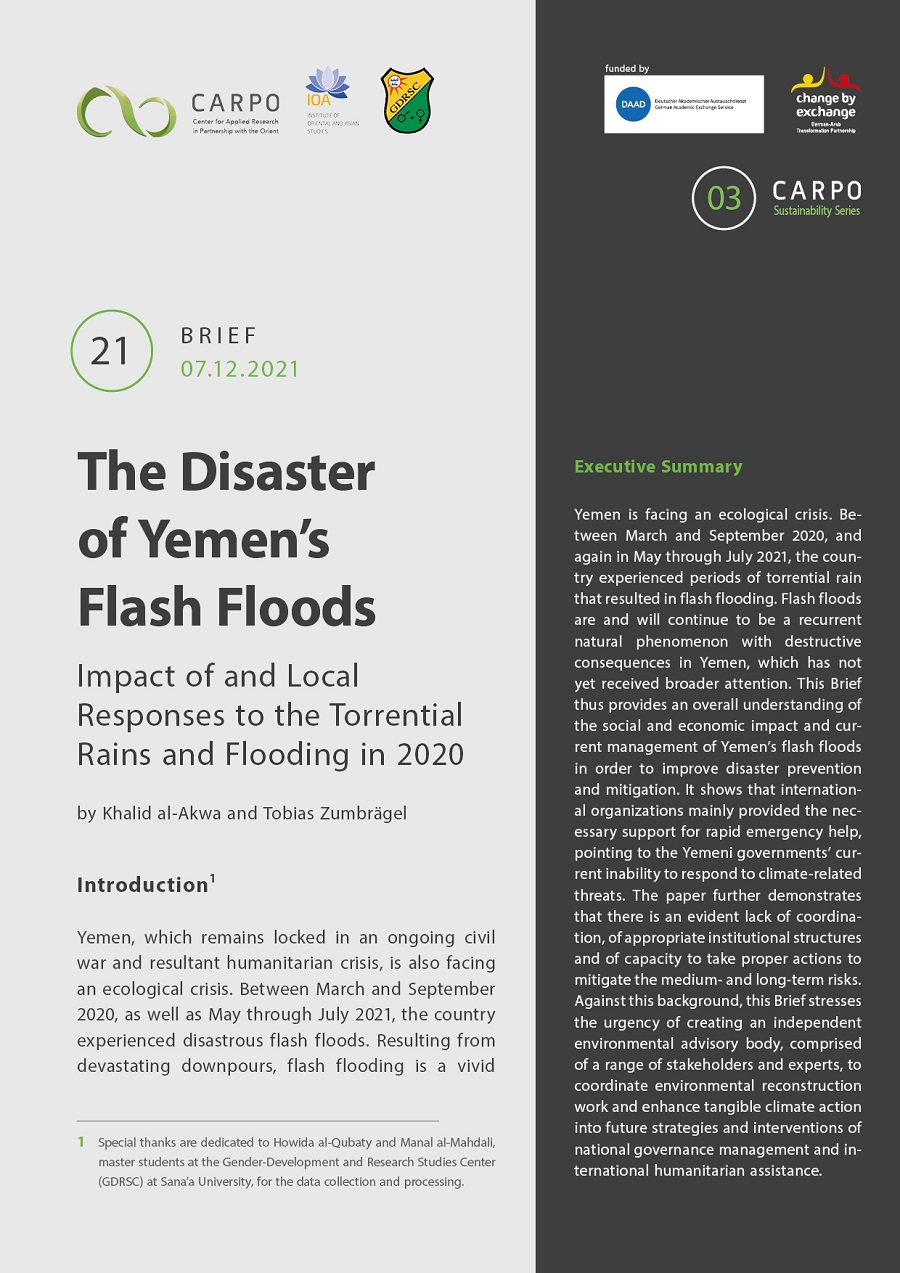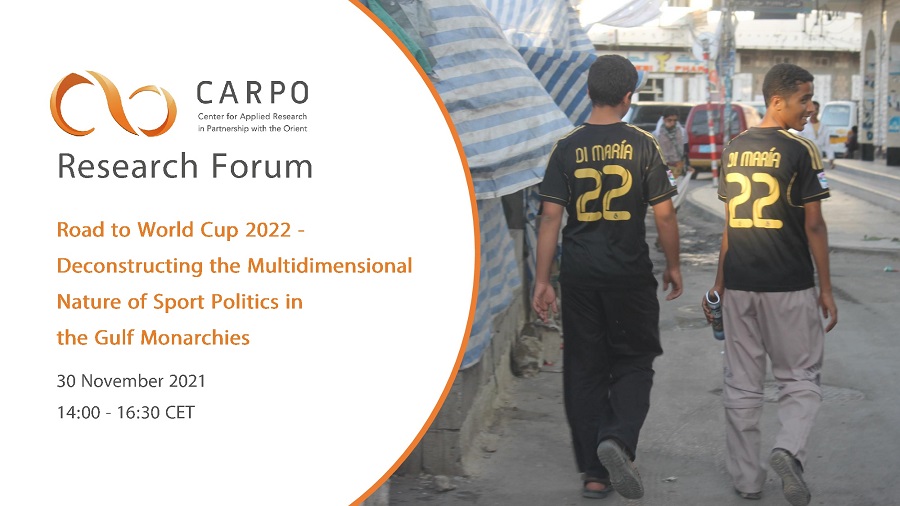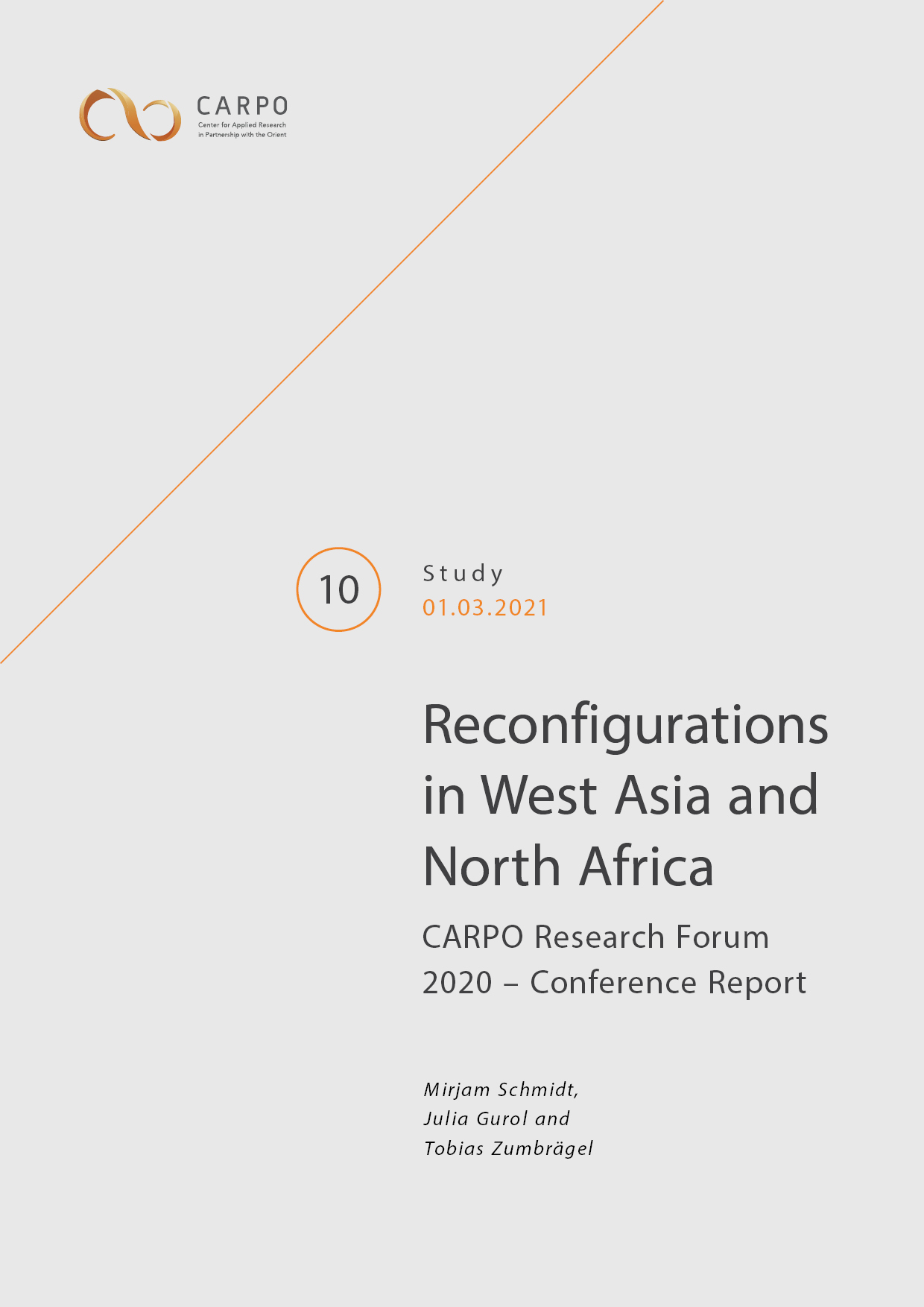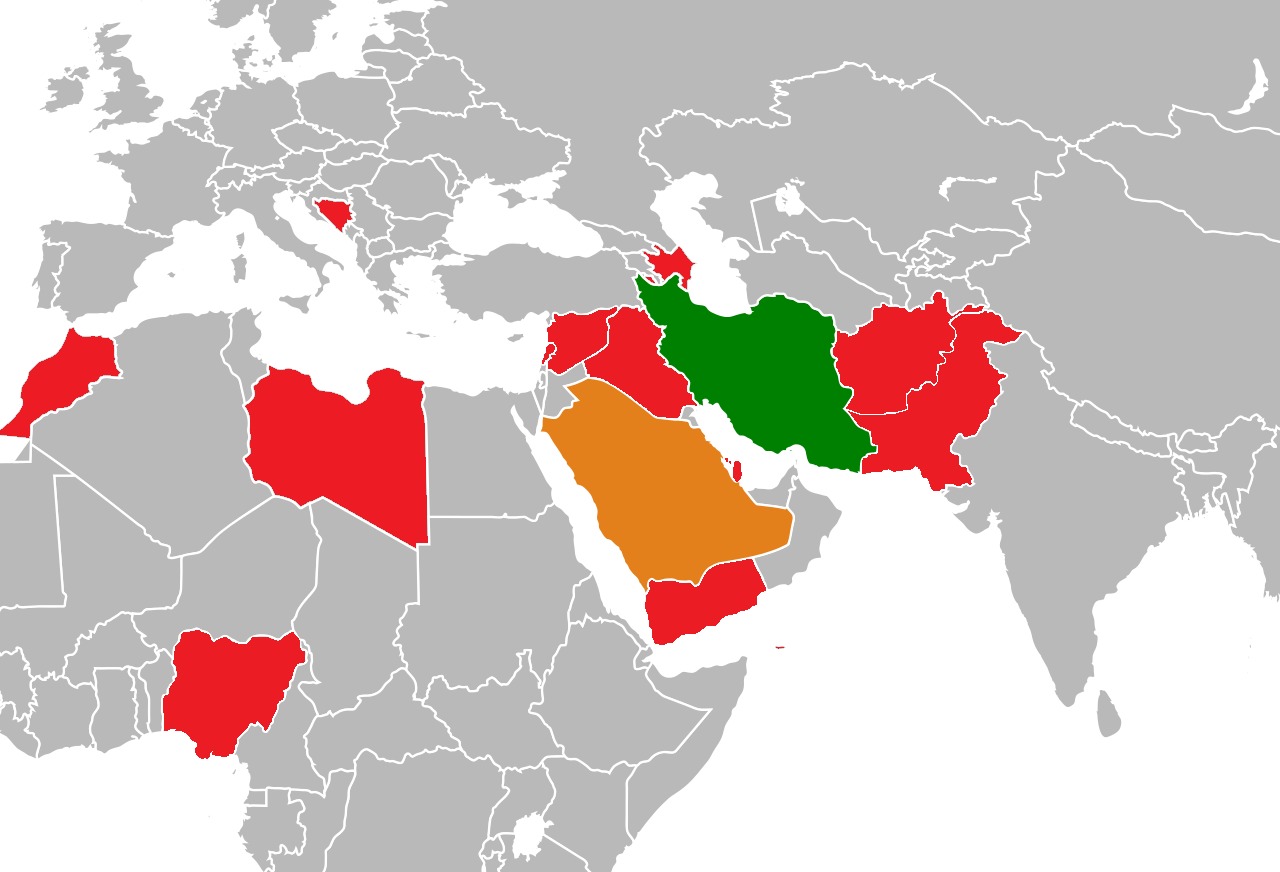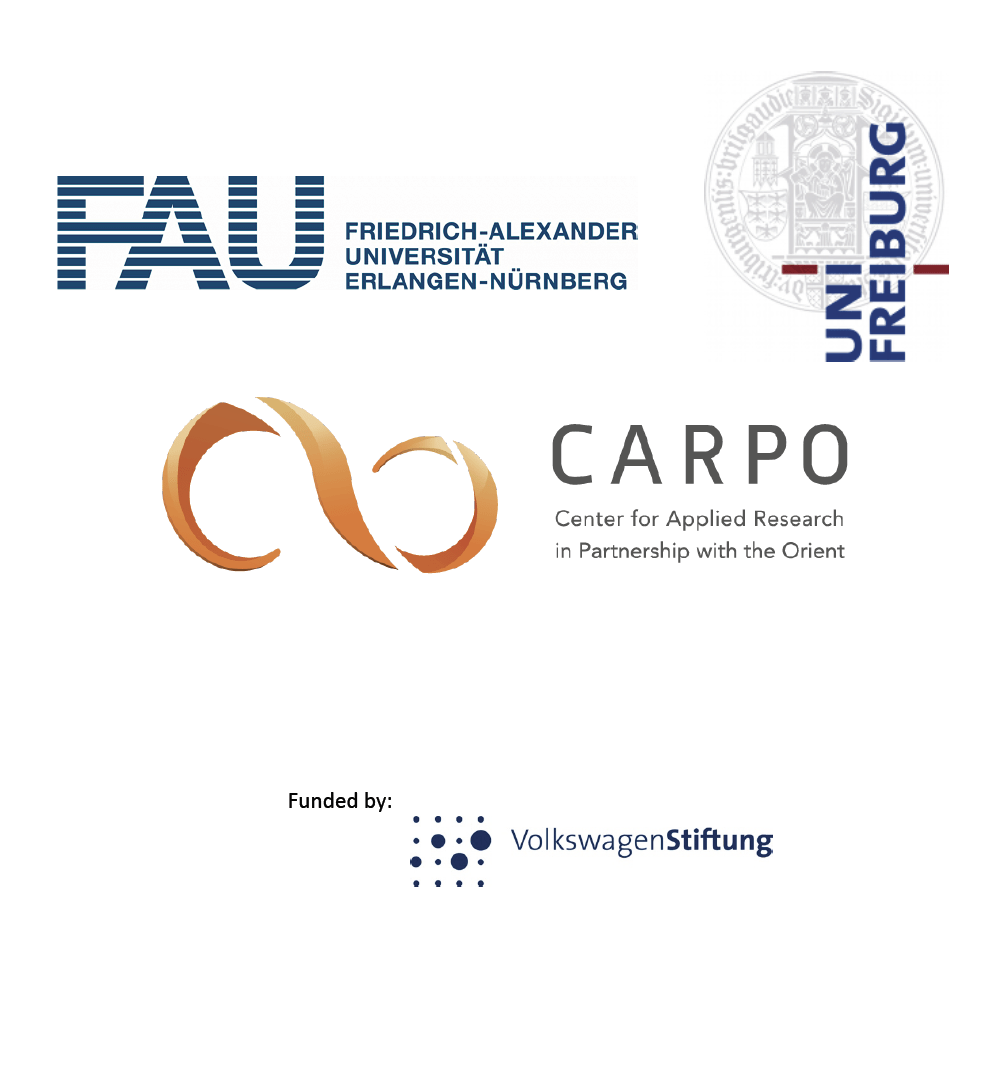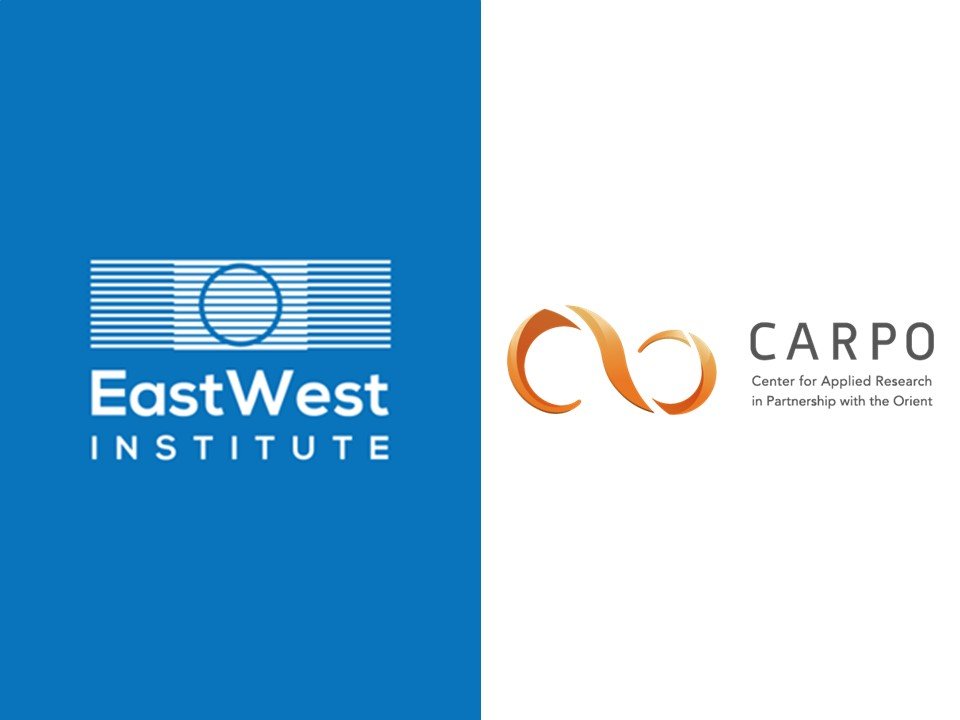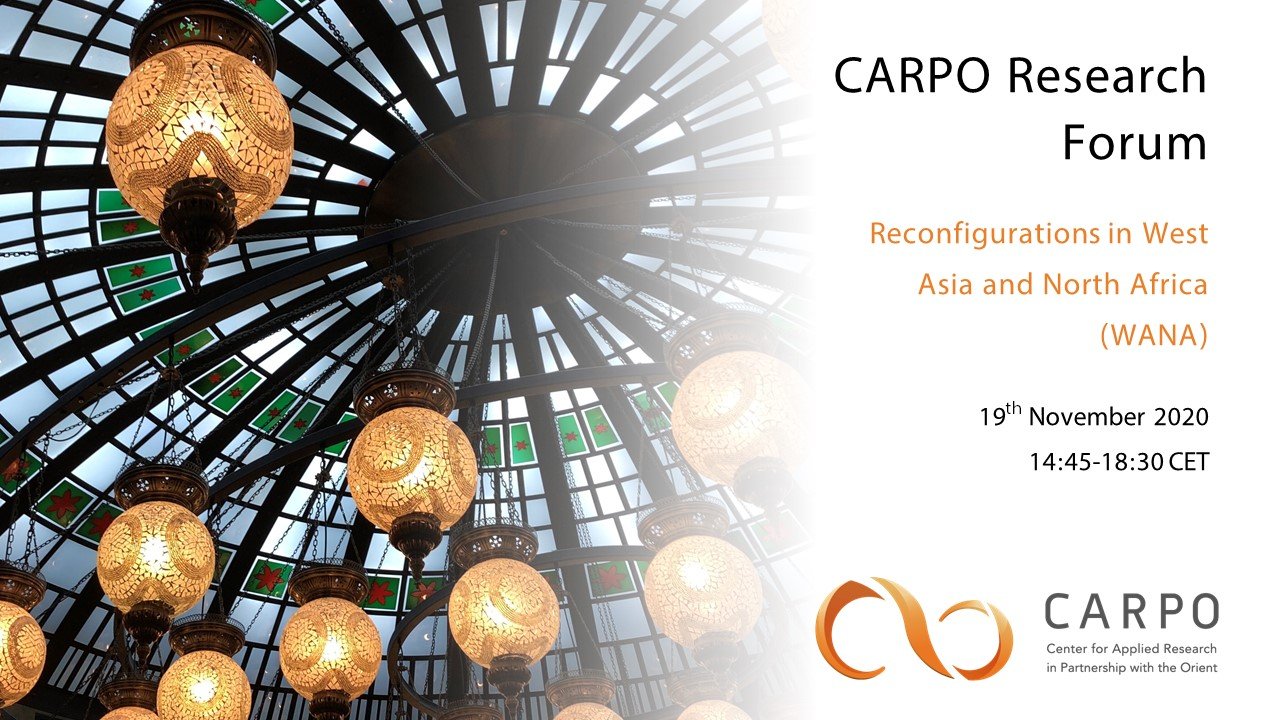Since April 2022, the war in Yemen has mutated from a high-casualty conflict to a protracted stalemate with relatively stable frontlines. The current phase has been marked by the expansion of economic warfare, with the Houthi authorities shutting down trade from internationally recognized government-controlled areas, stoking discontent as public utilities break down and the currency […]
Read more...Author: Mirjam Schmidt
Dialogue and Mediation in a Multipolar World. CARPO Research Forum 2023 – Conference Report
by Desirée Custers
The 4th edition of the CARPO Research Forum (CRF) was entitled “Dialogue and Mediation in a Multipolar World” and took place online on November 29, 2023. It brought together several renowned experts to discuss the role of dialogue and mediation in a global climate characterized by polarization and multipolarity. The deliberations were centered on what kind of impact these global trends may have on dialogue and mediation efforts. More specifically, the inputs by the experts addressed questions such as: what the merits and limits of dialogue are; how dialogue initiatives can lead to actual mediation efforts; and how the need for neutrality and balance can be reconciled with moral convictions.
The CRF started with a keynote speech by Peter Jones, Executive Director of Ottawa Dialogue, and was followed by a discussion with panelists Jamila Ali Rajaa, Co-Founder of Consult Yemen, Ibrahim Fraihat, Associate Professor in International Conflict Studies at the Doha Institute for Graduate Studies, Julia Pickhardt, Project Manager Yemen at CMI – Martti Ahtisaari Peace Foundation, and Oliver Wils, Head of Berghof Foundation’s MENA Department. The panel was moderated by Jane Kinninmont, Director Policy and Impact at the European Leadership Network.
Read more Read more...The ‘Climate-Energy-Health Nexus’
An Entry-Point for Environmental Cooperation in West Asia and the Arabian Peninsula by Sina Winkel and Sebastian Sons Based on insights obtained through the Tafahum wa Tabadul project, the authors discuss how recent geopolitical dynamics in West Asia and the Arabian Peninsula may pave the way towards cross-border environmental engagement on an inclusive political, academic, […]
Read more...4th CARPO Research Forum: Dialogue and Mediation in a Multipolar World
When: 29 November 2023, 15:00-17:00 (CET)
Today’s global affairs are becoming increasingly complex and overwhelming. The pace of tectonic geopolitical shifts, the intensity of continued unbearable conflicts, as well as the level of devastation through climate change are difficult to cope with and to sufficiently comprehend. While this global context is maximizing the need for patient and inclusive dialogue, time and space for such dialogue are becoming more and more limited. A new level of polarization is dominating the public discourse, leaving very little room for context, nuances and a multi-angle perspective on complex realities.
At this year’s 4th CARPO Research Forum, we want to shed light on what kind of impact this trend may have on dialogue initiatives, as well as on mediation efforts. Is it, indeed, more challenging to conduct dialogue and mediation in a multipolar world? To address this question, we have ensured the participation of truly distinguished speakers who are both scholars and practitioners of dialogue. With their help, we want to examine what the merits and limits of dialogue are, how dialogue initiatives can lead to actual mediation efforts, and how the need for neutrality and balance can be reconciled with moral convictions.
As it has been the case in the past, the CARPO Research Forum does not aim to answer all of these questions but to provide some guidance on how to address those questions with the help of experienced experts.
The CARPO Research Forum is a public online event for which everyone can register.
Read more Read more...Annual Report 2022
The year 2022 was an eventful year for CARPO – both positively and negatively. We began the year with full steam, taking advantage of the increasingly easing travel restrictions that had impacted our work during the Corona years. In mid-2022, we received a very distinguished visitor at our premises in Bonn: Federal Foreign Minister Annalena […]
Read more...Energy Injustice and Its Role for Environmental Peacebuilding
Ahmad Al-Wadaey, Tobias Zumbrägel and Ali Alamudi This Report discusses the crucial but understudied impact of oil extraction industries on local communities and the environment in Yemen’s Hadhramawt governorate. By combining conceptual approaches of energy justice and the environmental peacebuilding literature, it provides a novel perspective on how environmental pollution via the oil industry in […]
Read more...Zooming in on the Yemen War. The Future of Warfare and Human Rights in the Middle East
Missiles, drones, precision-guided munition, and other military technologies that enable belligerents to attack their enemies from a distance are changing the concepts and practices of warfare. This can best be observed in the conflict-ridden region of the Middle East, particularly in the Yemen war, which has witnessed one of the most extensive use of missiles […]
Read more...China, Corona, Climate Change – Three Gamechangers for the Arab Gulf States
by Stefan Lukas and Sebastian Sons This CARPO Report analyzes how the Corona pandemic, China and climate change are acting as major gamechangers for the Arab Gulf States, reshuffling old geopolitical, economic and social structures. These new developments in the region also mean that European players will have to come up with new strategies if […]
Read more...Research Cooperation with the ‘Global South’ [in German]
by Sarah Wessel This CARPO Report outlines the critical debate about the ‘Global South’, the effect of unequal distribution in the emergence, generation and acceptance of specific knowledge regimes as well as central challenges in cooperation with sometimes politically sensitive and crisis-ridden contexts. The concluding recommendations for research institutions, funding organizations and politics encourage a debate […]
Read more...Cultural Exchange and the Prospects for Inter-Societal Relations between Saudi Arabia and Iran
by Mirjam Schmidt and Desirée Custers In August 2022, CARPO and Stimson Europe hosted a workshop looking into the potential of cultural diplomacy and cultural exchange between Iran and Saudi Arabia. While the two countries share a rich history of cultural relations, their present-day cultural exchange is minimal due to geopolitical differences. But in spite […]
Read more...CARPO Podcast Folge 6: Frauen und Sport in den Golfstaaten
mit Anna Reuß Mit Blick auf den Austragungsstaat der WM 2022 fallen nicht nur die Menschenrechtsverletzungen gegenüber den Arbeitsmigrant:innen ins Auge. Auch die Rolle der Frauen in der katarischen Gesellschaft wird international kontrovers diskutiert. Anna Reuß berichtet in dieser Folge über die Lage der Frauen in Katar und in anderen Ländern der Region und ob […]
Read more...Towards #KnowledgeJustice? Addressing Asymmetries in Global Knowledge Production
When: 30 November 2022, 15:00-17:00 (CET)
If knowledge is an imperial instrument of colonization, then the decolonization of knowledge is one of the most urgent tasks: Global structures of knowledge production are still marked by asymmetries. Once referred to by Quijano as the “coloniality of knowledge,” this “epistemic violence” of knowledge production is still present in the 21st century.
Against this backdrop, CARPO’s third virtual Research Forum (CRF) investigates and critically discusses the underrepresentation of the so-called Global South in global knowledge production. Among others, we address the following questions: Which persisting asymmetries of knowledge production prevail? How can these inequalities in the system of global knowledge production be reduced or even eliminated? And what is the role of different actors from different world regions in this process towards knowledge justice?
Overall, the CRF wants to shed more light on an often under-represented topic and put the finger on the prevailing asymmetries in global knowledge production. The event shall provide a platform for discussion by bringing together experts from the Global South and North on this issue. Furthermore, it discusses initiatives to reduce asymmetries in global knowledge production and, in terms of positionality, locates the challenges, responsibilities and fields of action for scholars working in the Global North.
You can register here.
Read more Read more...CARPO Podcast Folge 4: Sport- und Fußballkultur in Saudi-Arabien und Iran
mit Simon Müller und Christoph Becker In der vierten Folge werfen wir einen Blick auf die Sport- und Fußballkultur in zwei weiteren Golfstaaten, Iran und Saudi-Arabien. In beiden Staaten sind Sport und Politik eng verwobene. Darüber sprechen wir mit Simon Müller, dem Geschäftsführer und Gründer der Firma SportsHub KSA, und dem Sportjournalisten Christoph Becker. Weitere […]
Read more...CARPO Podcast Folge 2: Der Fußball und die Golfstaaten – zwischen Fankultur und Sportswashing
mit Leo Wiggert und Robert Chatterjee In unserer zweiten Folge beleuchten wir, warum Katar überhaupt eine WM ausrichtet, und sprechen außerdem mit den Journalisten Leo Wiggert und Robert Chatterjee vom Nahostmagazin zenith, die von ihrer Reise nach Katar und ihrer Suche nach der Fußballkultur vor Ort berichten. Weitere Anekdoten und Fakten über Katar als Fußballnation […]
Read more...CARPO Podcast Folge 1: Der Fußball und die arabische Welt – Protestkultur und Diktaturen
mit Ronny Blaschke In dieser Folge sprechen wir mit dem Sportjournalisten Ronny Blaschke, der sich seit zwei Jahrzehnten intensiv mit den Verstrickungen von Fußball und Politik, speziell in autokratischen Ländern des Mittleren Ostens, auseinandersetzt. Dabei wird deutlich: Fußball ist nicht nur ein politisches Instrument für die Herrscher, sondern kann auch Möglichkeiten des Protestes bieten. Mehr […]
Read more...CARPO Podcast Trailer: Katar 2022 – Mehr als eine WM
Addressing the Crushing Weight of Yemen’s Public Debt
For decades prior to the ongoing conflict, Yemen had been vulnerable to recurring budget deficits. The escalation of the ongoing conflict in 2014/15 has had a profoundly negative impact on Yemen’s debt position. Large-scale oil exports ceased, leading to a collapse in public revenues, while banks and pension funds stopped purchasing government debt instruments. Management […]
Read more...Narratives of (In)Justice in Contemporary Yemeni Novels
by Osama Ali, Fadhilah Gubari, Julia Gurol and Abdulsalam al-Rubaidi This Study analyzes narratives of (in)justice in contemporary Yemeni novels. Through a lexical field analysis of nine selected contemporary novels, the paper highlights how (in)justice is framed in narrative literature, both in terms of representations of certain socio-political practices and in terms of normative constructions […]
Read more...The Brussels MENA Briefing: Iraq, Beyond the Election – Internal and External Implications
November 25, 2021
On November 25, the Center for Applied Research in Partnership with the Orient (CARPO) and Stimson Europe hosted the thirteenth “Brussels MENA Briefing”—a series of after-work briefings on the Middle East and North Africa (MENA) region—on “Iraq, Beyond the Election: Internal and External Implications”.
Speakers included Ali Al-Mawlawi, who works as an independent analyst and researcher and specializes on Iraq’s political economy, Marsin Al-Shamary, who is a Research Fellow at the Middle East Initiative (MEI), and Hussein Al-Waeli, who works as an accredited journalist at the European Union. The discussion was moderated by Kawa Hassan, Senior Fellow and Director of the Middle East and North Africa division and Executive Director of Stimson Europe.
Read more Read more...The Disaster of Yemen’s Flash Floods. Impact of and Local Responses to the Torrential Rains and Flooding in 2020
by Khalid al-Akwa and Tobias Zumbrägel Between March and September 2020, and again in May through July 2021, Yemen experienced periods of torrential rain that resulted in flash flooding. Flash floods are and will continue to be a recurrent natural phenomenon with destructive consequences in Yemen, which has not yet received broader attention. This Brief […]
Read more...Road to World Cup 2022 – Deconstructing the Multidimensional Nature of Sport Politics in the Gulf Monarchies
When: 30 November 2021, 14.00 – 16.30 (CET) The Gulf region provides a whole bunch of examples of how leaderships strategically engage in global sports. For instance, the United Arab Emirates (UAE), Bahrain and Saudi Arabia organize sports mega events such as the Formula One races and boxing fights. Additionally, Gulf state organizations are heavily involved in sport business through large-scale […]
Read more...Improving Relations Between Central State Institutions and Local Authorities
Local councils are responsible for spearheading development projects and providing basic public services to Yemen’s population of more than 30 million people. The councils are particularly important in rural areas, where about 70 percent of Yemen’s population lives. In July 2018, the Rethinking Yemen’s Economy initiative published a White Paper that explored how the collapse […]
Read more...Reconfigurations in West Asia and North Africa. CARPO Research Forum 2020 – Conference Report
by Mirjam Schmidt, Julia Gurol and Tobias Zumbrägel The first CARPO Research Forum, which took place in November 2020, addressed the reconfigurations and challenges the WANA region is currently grappling with by selecting three major themes at the global, regional and local levels: It discussed the reconfigurations of external powers in the region with a […]
Read more...The Brussels MENA Briefing: The Gulf Cooperation Council at 40 – Opportunities and Challenges for the EU
June 16, 2021
On June 16, the Center for Applied Research in Partnership with the Orient (CARPO) and Stimson Europe hosted their twelfth “Brussels MENA Briefing” – a series of after-work briefings on the Middle East and North Africa (MENA) region – on “The Gulf Cooperation Council at 40: Challenges and Opportunities for the European Union (EU)”
Speakers included Najla al-Qassemi, Director Global Affairs Division, B’huth Dubai Public Policy Research Center, and Sebastian Sons, Researcher at CARPO. The discussion was moderated by Wael Abdulshafi, Research Analyst at the Stimson Center.
Read more Read more...Priorities for the Recovery and Reform of the Electricity Sector in Yemen
Poor electricity services in Yemen, even before the war, have been one of the key barriers to sustainable economic development and basic service provision (e.g., water supply, health care, education). This paper assesses the power supply system status prior to the war and subsequently discusses the impact of the war on electricity sector performance, followed […]
Read more...From Messenger to Host
Iraq as a Hub for Regional Dialogue
by Kawa Hassan, Adnan Tabatabai and Desirée Custers
Reports of a meeting held in Baghdad on the 9th of April 2021, between Iranian and Saudi security and intelligence officials, may herald a rare positive development in a region characterized by deep mutual mistrust, ongoing armed conflict, and proxy wars.
Read more Read more...Brussels MENA Briefing: Egypt in the Eastern Mediterranean
April 14, 2021
On April 14, the Center for Applied Research in Partnership with the Orient (CARPO) and the Stimson Center Europe hosted the eleventh “Brussels MENA Briefing”—a series of after-work briefings on the Middle East and North Africa (MENA) region—on “Egypt in the Eastern Mediterranean”.
Speakers included Dr. Ahmed Kandil, Senior Research Fellow and Head of the Energy Studies Program at the al-Ahram Center for Political and Strategic Studies, and Hafsa Halawa, independent consultant, Visiting Fellow at the Middle East and North Africa Program of the European Council on Foreign Relations and Non-resident Fellow at the Middle East Institute. The discussion was moderated by Desirée Custers, Research Assistant of the Middle East and North Africa Program at the Stimson Centre.
Read more Read more...Solar-Powered Irrigation in Yemen: Opportunities, Challenges and Policies
Yemen is one of the most water-scarce countries in the world. Its agricultural sector is the dominant user of groundwater resources, accounting for around 90 percent of total consumption. Due to the current crisis, fuel required for pumps has become scarce and very expensive; as a result, solar energy has begun to play a role […]
Read more...Brussels MENA Briefing: Lebanon at a Crossroads: Looming State Collapse and Prospects for External Engagement
March 17, 2021
On March 17, 2021 Stimson Europe and the Center for Applied Research in Partnership with the Orient (CARPO) hosted their tenth Brussels MENA Briefing titled “Lebanon at Crossroads: Looming State Collapse and Prospects for External Engagement”, on the political, economic, and social crisis in Lebanon. This was the first Briefing hosted by the new Middle East and North Africa Program launched by the Stimson Center in March 2021, and located at Stimson’s new permanent presence in Brussels, Belgium. The Brussels MENA Briefings are a continuation of a series of discussion previously conducted by the EastWest Institute (EWI).
The Briefing started with an in-depth analysis of the current situation in Lebanon, with one speaker emphasizing the lack of progress in the investigation into the Beirut blast of August 4, 2020. This unprecedented, massive explosion led to at least 200 deaths and was caused by a large amount of ammonium nitrate stored in a port warehouse without proper safety measures. The speaker highlighted that the judge leading the investigation was dropped from the case in February 2021, after he had charged the caretaker prime-minister and three former ministers with negligence. The opaque investigation is seen as symptomatic of the country’s current predicament, namely lack of accountability of the ruling elite.
Read more Read more...New Project Launched: Global Autocratic Collaboration in Times of COVID-19
There is strong empirical evidence that COVID-19 acts as a booster for processes of global autocratization in which autocratic protagonists present themselves as more effective role modelsin fighting the pandemic than the ‘liberal script’ of Western societies. This project aims at explaining these corridors of autocratic collaboration based on the example of Sino-Gulf relations that […]
Read more...Post COVID-19: A Potential for Green Recovery in the Arab Gulf States
by Aisha Al-Sarihi The novel coronavirus pandemic has disrupted the GCC’s focus on environmental sustainability projects, as shoring up economies and protecting human health have become top priorities for governmental countermeasures. This Brief argues that associating COVID-19 economic recovery packages with measures aimed to safeguard the environment and tackle climate change, towards a so-called ‘green […]
Read more...Impacts of the War on the Telecommunications Sector in Yemen
The telecommunications and information technology sector in Yemen is the second largest source of public revenue after the petroleum sector, and contributes important work opportunities, whether directly or indirectly, through its connections to other sectors of the national economy. Some of the most important challenges of the sector are the unsuitability of the legal and […]
Read more...Brussels MENA Briefing: Kuwait and the post-Sheikh Sabah Era
December 1, 2020
On December 1, the EastWest Institute (EWI) and the Center for Applied Research in Partnership with the Orient (CARPO) hosted the ninth “Brussels MENA Briefing”—a series of after-work briefings on the Middle East and North Africa (MENA) region—on “Kuwait and the post-Sheikh Sabah Era”.
Speakers included Vice Admiral (ret.) Ahmad Al-Mulla, advisor to the Kuwaiti Ministry of Defense, and Dr. Courtney Freer, assistant professorial research fellow at the Middle East Center of the London School of Economics. Well-known experts on the Persian Gulf region and members of the European policy community virtually attended this briefing, which was held under the Chatham House Rule.
Read more Read more...Brussels MENA Briefing: The Biden Administration’s Middle East Policy and Transatlantic Relations
November 17, 2020
On November 17, the EastWest Institute (EWI) and Center for Applied Research in Partnership with the Orient (CARPO) hosted their eighth “Brussels MENA Briefing”—a series of after-work briefings on the Middle East and North Africa (MENA) region—on the recent election of Joe Biden as U.S. president-elect and the changes his administration could bring to both the United States’ own Middle East policy, as well as its transatlantic relations with the European Union (EU) vis-à-vis the Middle East.
Speakers included Cameron Munter, former U.S. ambassador and former president of the EastWest Institute, and James Moran, associate senior fellow at the Center for European Policy Studies (CEPS). The discussion was moderated by Wael Abdul-Shafi, EWI MENA program associate.
Read more Read more...Brussels MENA Briefing: The Economic Dimensions of the Conflict in Yemen
October 6, 2020
The seventh edition of the Brussels MENA Briefing, co-hosted by the EastWest Institute (EWI) and the Center for Applied Research in Partnership with the Orient (CARPO), in partnership with the Rethinking Yemen’s Economy initiative, was dedicated to the economic impact of the ongoing conflict in Yemen—a war that started in 2014/15 and has since turned the country into the world’s worst humanitarian crisis according to the UN.
The Rethinking Yemen’s Economy initiative aims to contribute to peacebuilding and conflict prevention, economic stabilization and sustainable development in Yemen by building consensus in crucial policy areas through engaging and promoting informed Yemeni voices from all backgrounds (the “Development Champions”) in public discourse on development, economy and post-conflict reconstruction in Yemen, and by positively influencing local, regional and international development agendas. It is implemented by CARPO, DeepRoot Consulting and the Sanaa Center for Strategic Studies and is generously funded by the European Union and the Embassy of the Kingdom of the Netherlands to Yemen.
Read more Read more...Reconfigurations in West Asia and North Africa (WANA)
When: Nov 19th 2020; 14:45-18:30 CET The region that spans West Asia and North Africa (WANA) is in a process of a profound transformation. Despite their heterogenous character, all WANA countries experience social, (geo)political, environmental and economic challenges they need to overcome; albeit in different degrees. The current COVID-19 pandemic acts as an accelerator to […]
Read more...Registration
Brussels MENA Briefing: Jordanian Foreign Policy in Light of Regional Geopolitical Shifts
September 8, 2020
On September 8, the Center for Applied Research in Partnership with the Orient (CARPO) and the EastWest Institute (EWI) hosted their sixth “Brussels MENA Briefing”—a series of after-work briefings on the Middle East and North Africa (MENA) region—on the topic of “Jordanian Foreign Policy in Light of Regional Geopolitical Shifts.”
Speakers included Dr. Amer Al Sabaileh, professor at the University of Jordan and well-known security and political analyst, and Dr. Edmund Ratka, designated head of the Amman Office of the Konrad Adenauer Foundation. The discussion was moderated by Wael Abdul-Shafi, EWI MENA program associate.
Read more...Brussels MENA Briefing: How to Rescue Sudan’s Transition Process
July 7, 2020
On July 7, the Center for Applied Research in Partnership with the Orient (CARPO) and the EastWest Institute (EWI) hosted their fifth “Brussels MENA Briefing”—a series of after-work briefings on the MENA region—focusing on how to rescue Sudan’s transition process, as well as the role the international community can play in Sudan’s political transition.
Speakers included Yasir Zaidan, lecturer of international affairs and security studies at the National University of Sudan, and Dr. Annette Weber, senior fellow at the Africa and Middle East division of the German Institute for International and Security Studies (SWP) in Berlin. EWI’s Vice President of the MENA program, Kawa Hassan, served as moderator.
Read more...Brussels MENA Briefing: New Iraqi Government in Place: Challenges and Opportunities for Iraq in its Neighborhood
June 9, 2020
On June 9, the Center for Applied Research in Partnership with the Orient (CARPO) and the EastWest Institute (EWI) hosted their fourth “Brussels MENA Briefing”—a series of afterwork briefings on the MENA region—focusing on challenges facing the new Iraqi government, as well as the role the European Union (EU) can play in supporting the new government in Baghdad.
Speakers included Sajad Jiyad, visiting fellow at the European Council on Foreign Relations (ECFR) and former managing director of the Al-Bayan Center for Planning and Studies based in Baghdad, and Daniela Verena Huber, head of the Mediterranean and Middle East Program of the Istituto Affari Internazionali (IAI). EWI’s Vice President of the MENA program, Kawa Hassan, severed as moderator.
Read more...
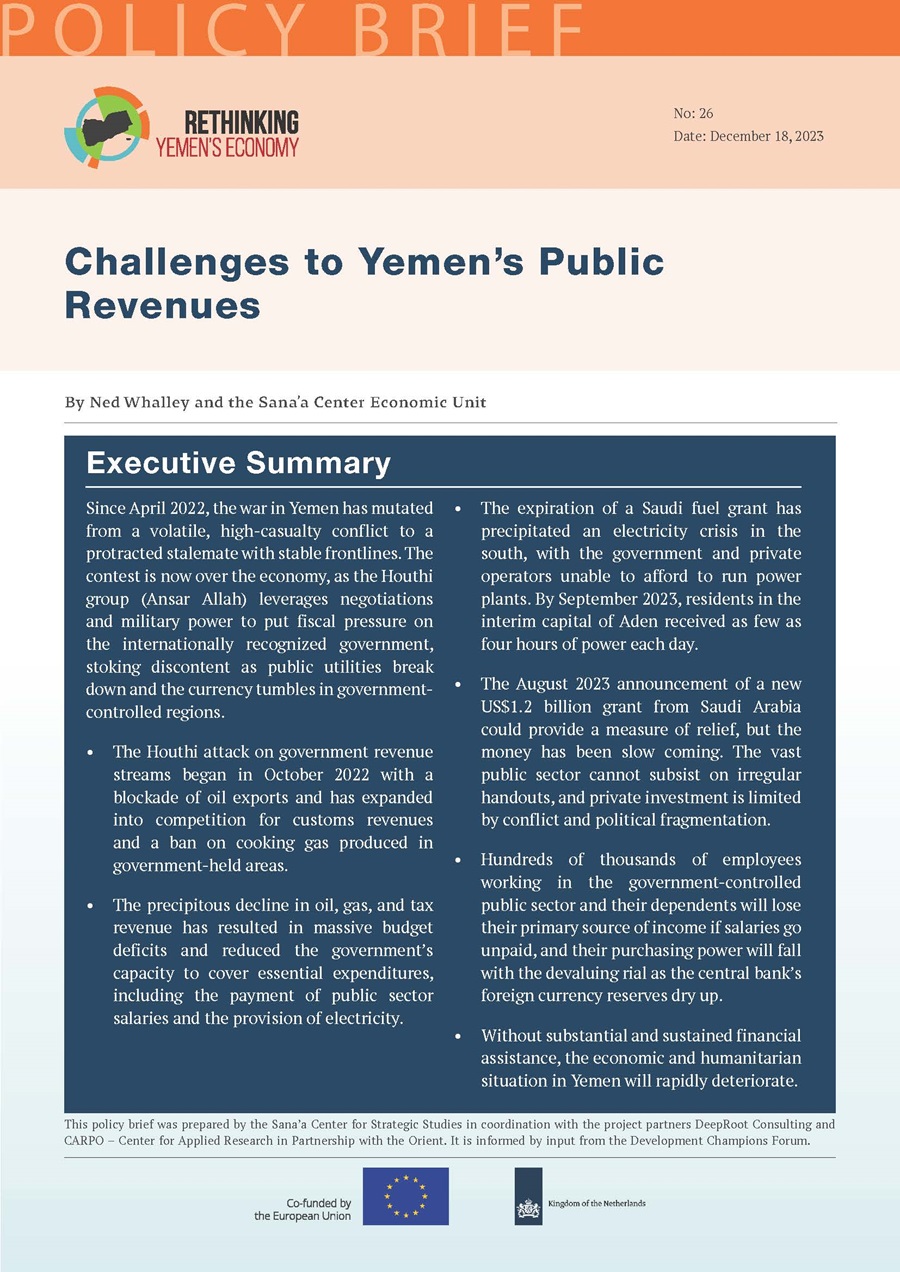
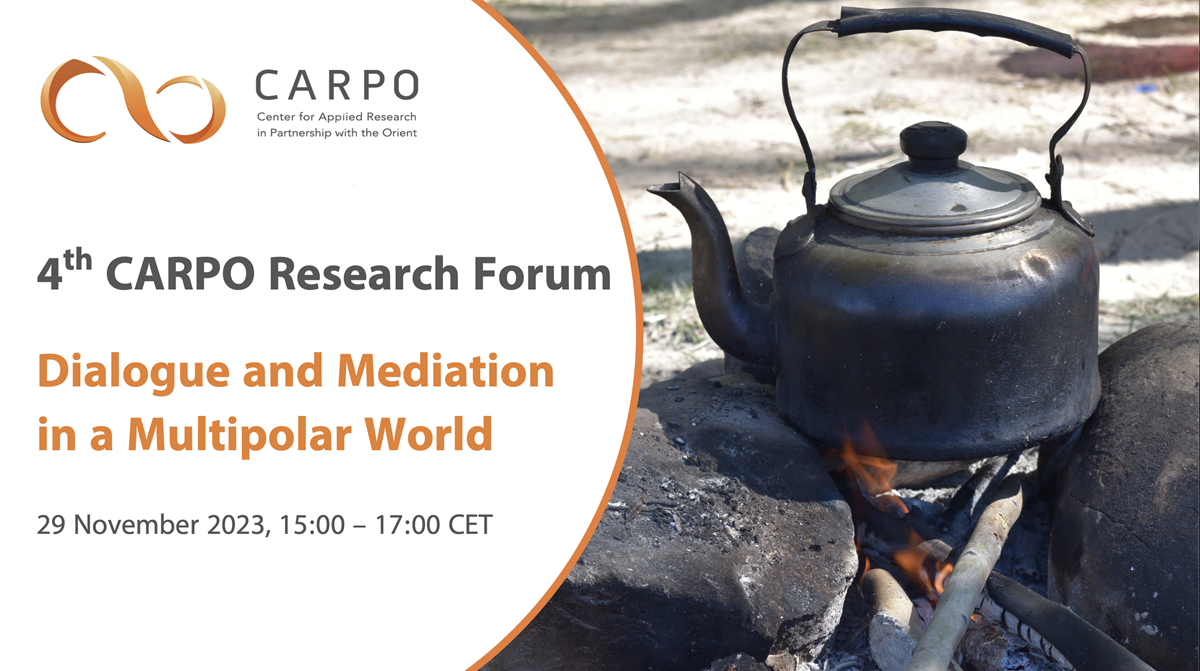
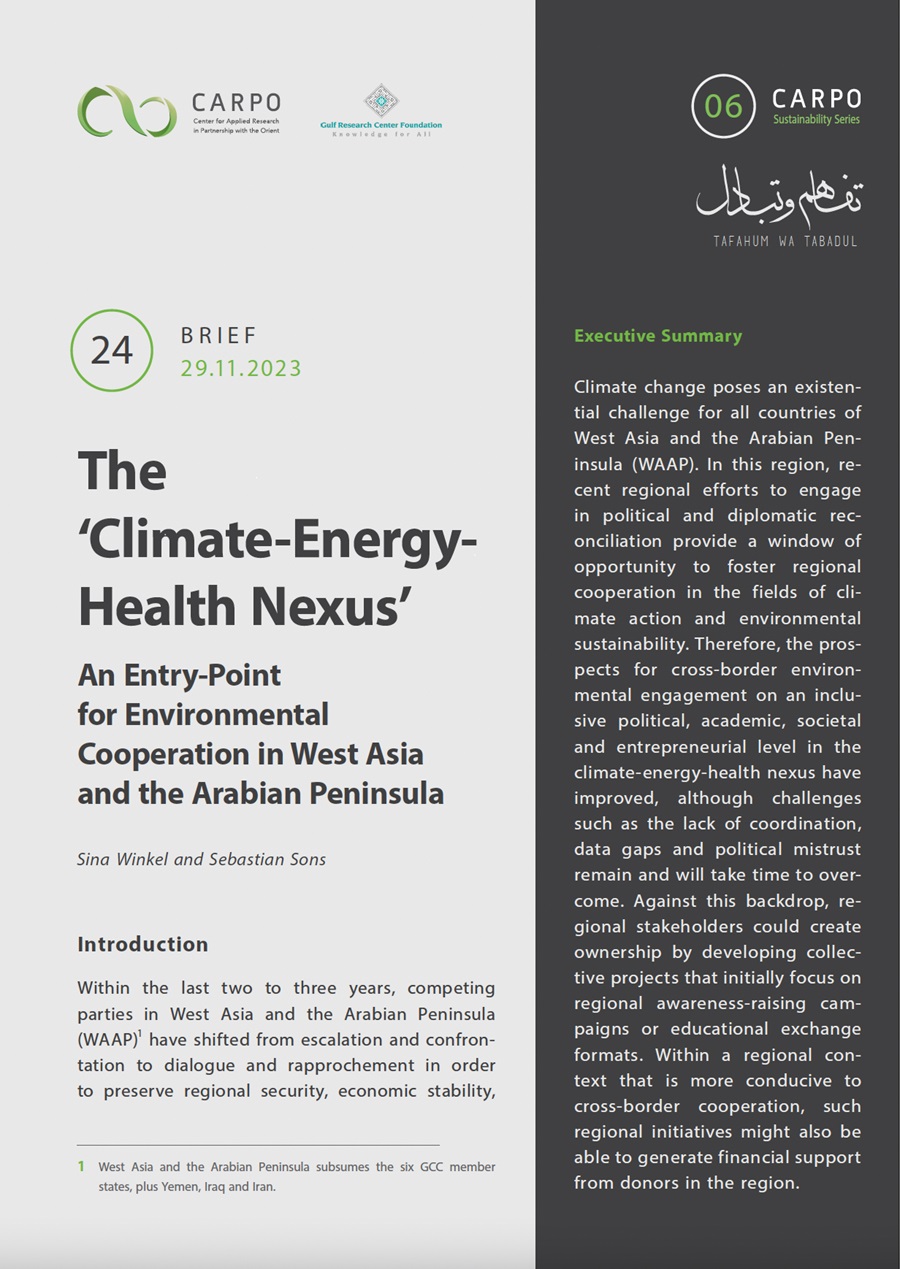
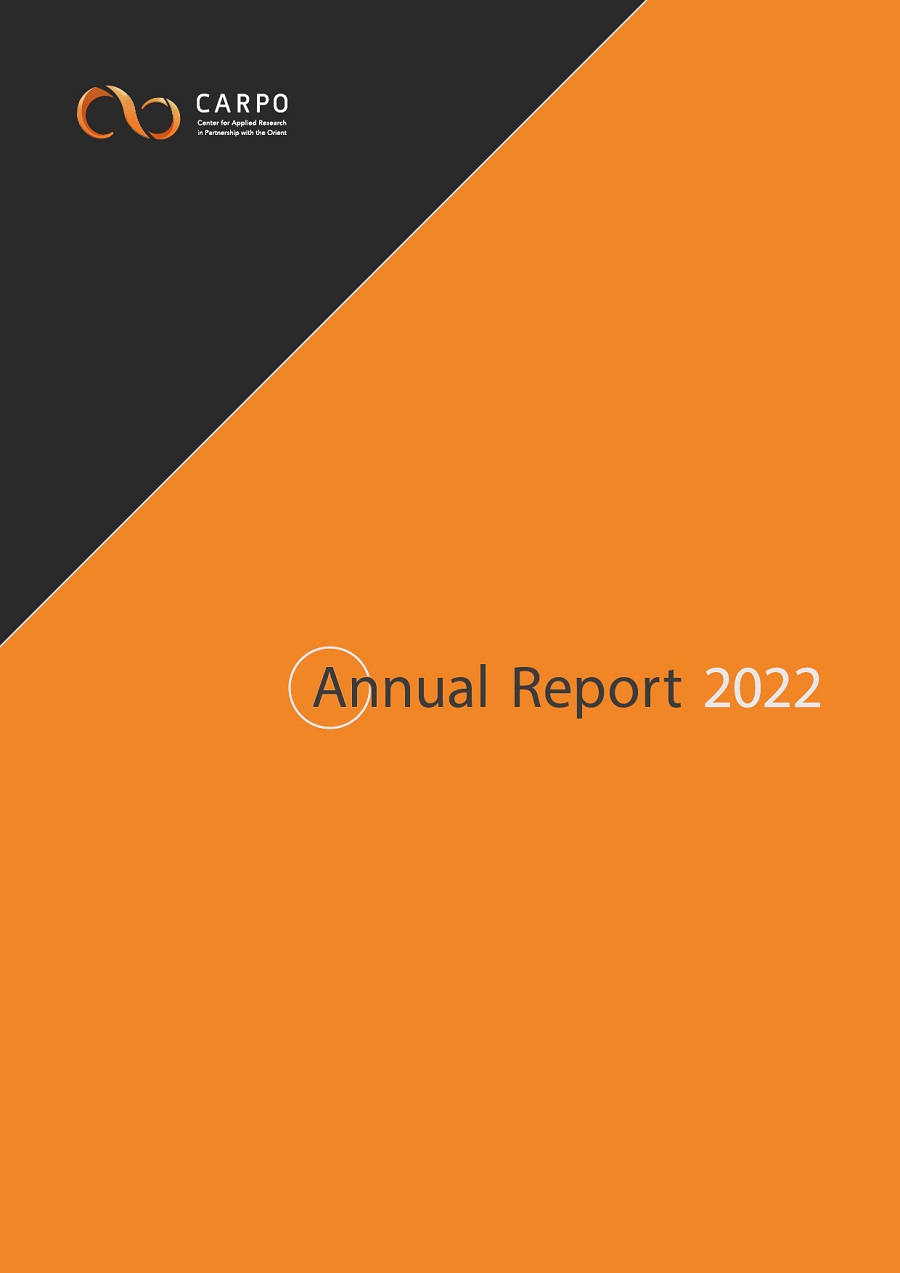
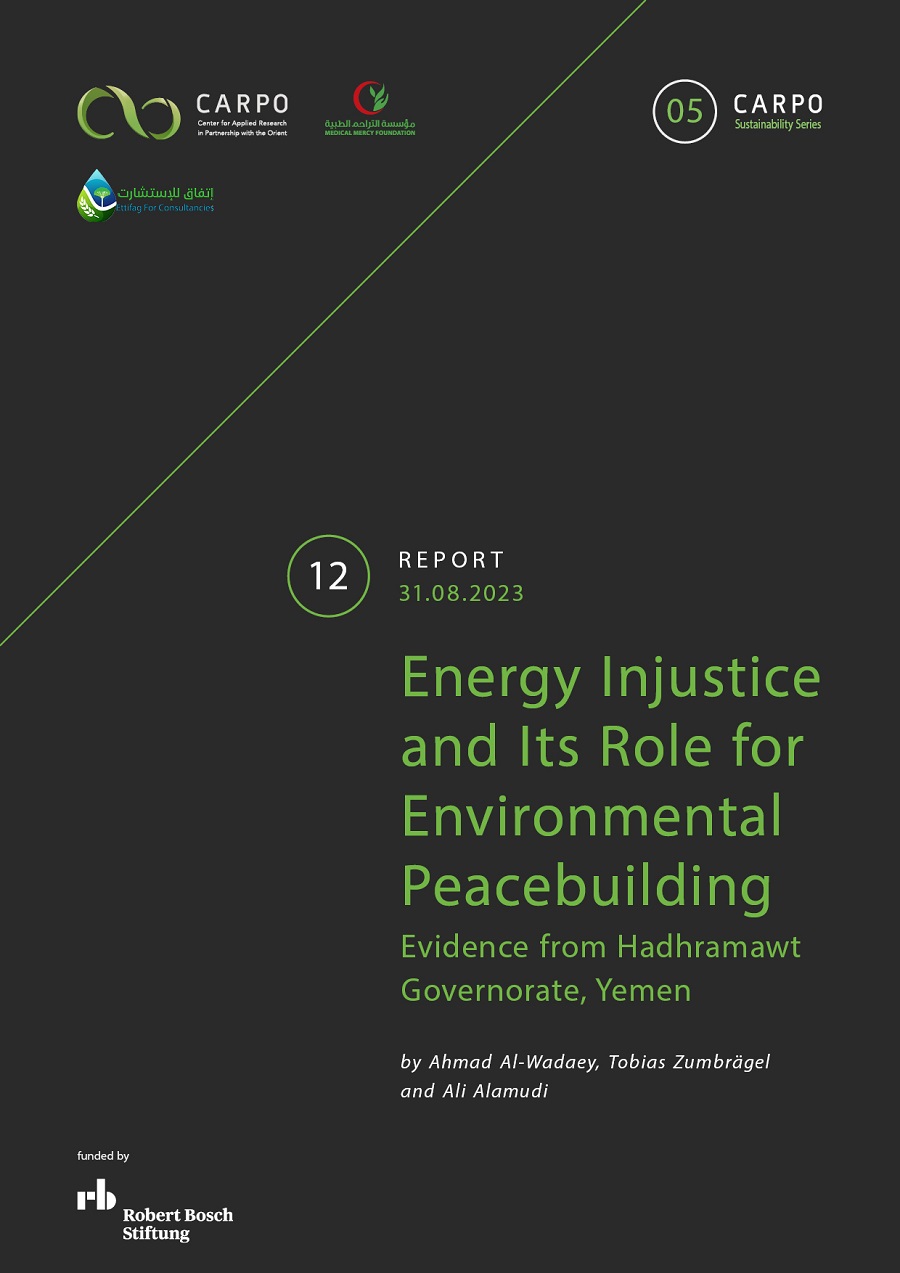
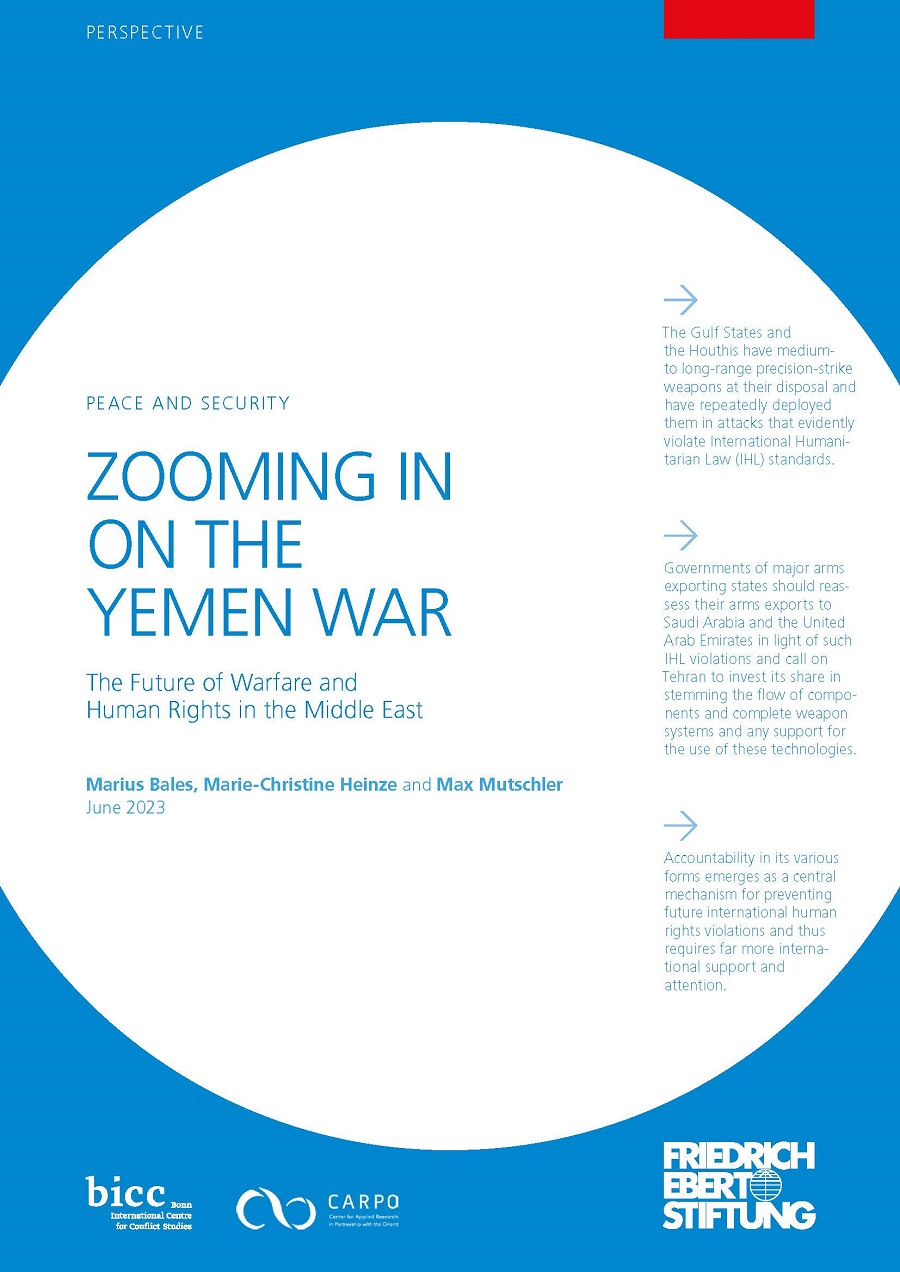
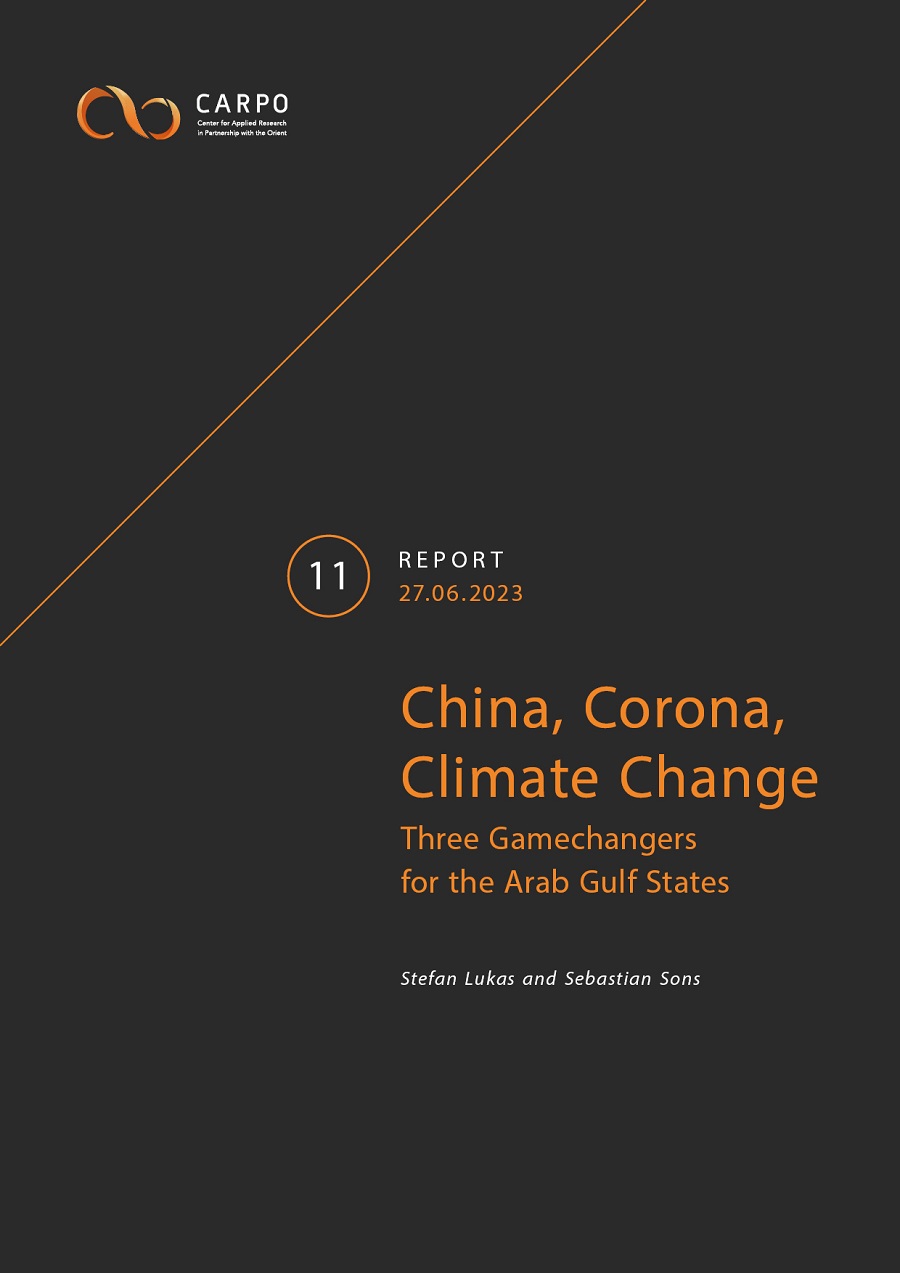
![Research Cooperation with the ‘Global South’ [in German]](https://carpo-bonn.org/wp-content/uploads/2023/03/carpo_policy_report_10_0323.jpg)
